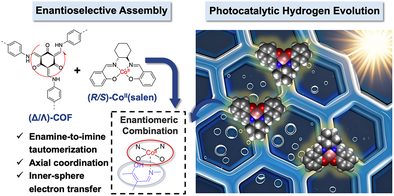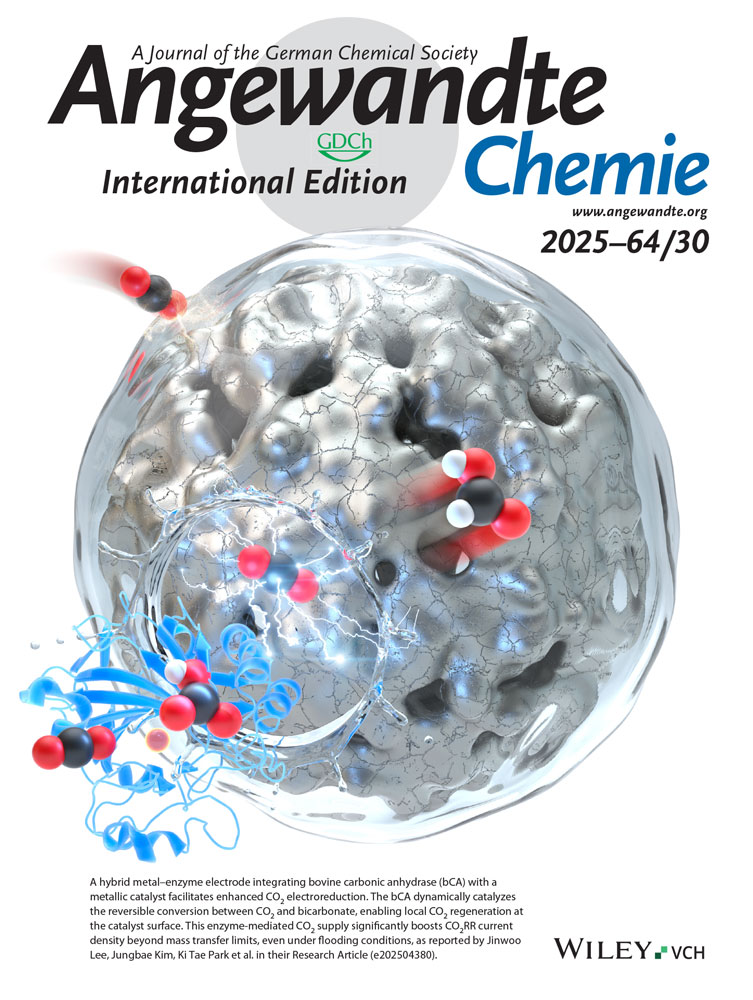Enantioselective Immobilization of Nonprecious Metal Complexes on Chiral Covalent Organic Frameworks for Improved Single-Site Photocatalytic Hydrogen Evolution
Graphical Abstract
Enantioselective immobilization of chiral Co(salen) complexes on the surface of chiral β-ketoenamine-linked COFs enables axial coordination of Co(II) centers with COF linkages, which tautomerize from keto-enamine to enol-imine upon binding. This enantiomeric assembly enhances Co(II) reducibility and allows for inner-sphere electron transfer, leading to remarkable photocatalytic H₂ evolution without additional precious metals.
Abstract
The noncovalent assembly of molecular catalysts into photocatalytic systems represents a pivotal strategy for exploring single-site heterogenous catalysts, excluding the need for elaborate functionalization design. However, the reliance on weak noncovalent interactions (e.g., van der Waals forces) often leads to inefficient outer-sphere electron transfer and inferior structural stability. Herein, we report the enantioselective immobilization of cobalt-based molecular catalysts with chiral tetradentate ligands onto the surface of a β-ketoenamine-linked chiral covalent organic framework (COF) synthesized through chirality induction. The enantiomeric assembly enables axial coordination between the molecular catalysts and the chiral COF, accompanied by enamine-to-imine tautomerization. Leveraging efficient inner-sphere electron transfer, the resulting composite exhibits a significantly enhanced H2 evolution rate (5.70 mmol g−1 h−1) and sustained performance without the use of precious metals. The enantiomeric assembly strategy on a COF platform demonstrates a viable approach to improve both the stability and activity of molecular catalysts, thereby expanding the design paradigm of single-site photocatalysts.
Conflict of Interests
The authors declare no conflict of interest.
Open Research
Data Availability Statement
The data that support the findings of this study are available from the corresponding author upon reasonable request.





